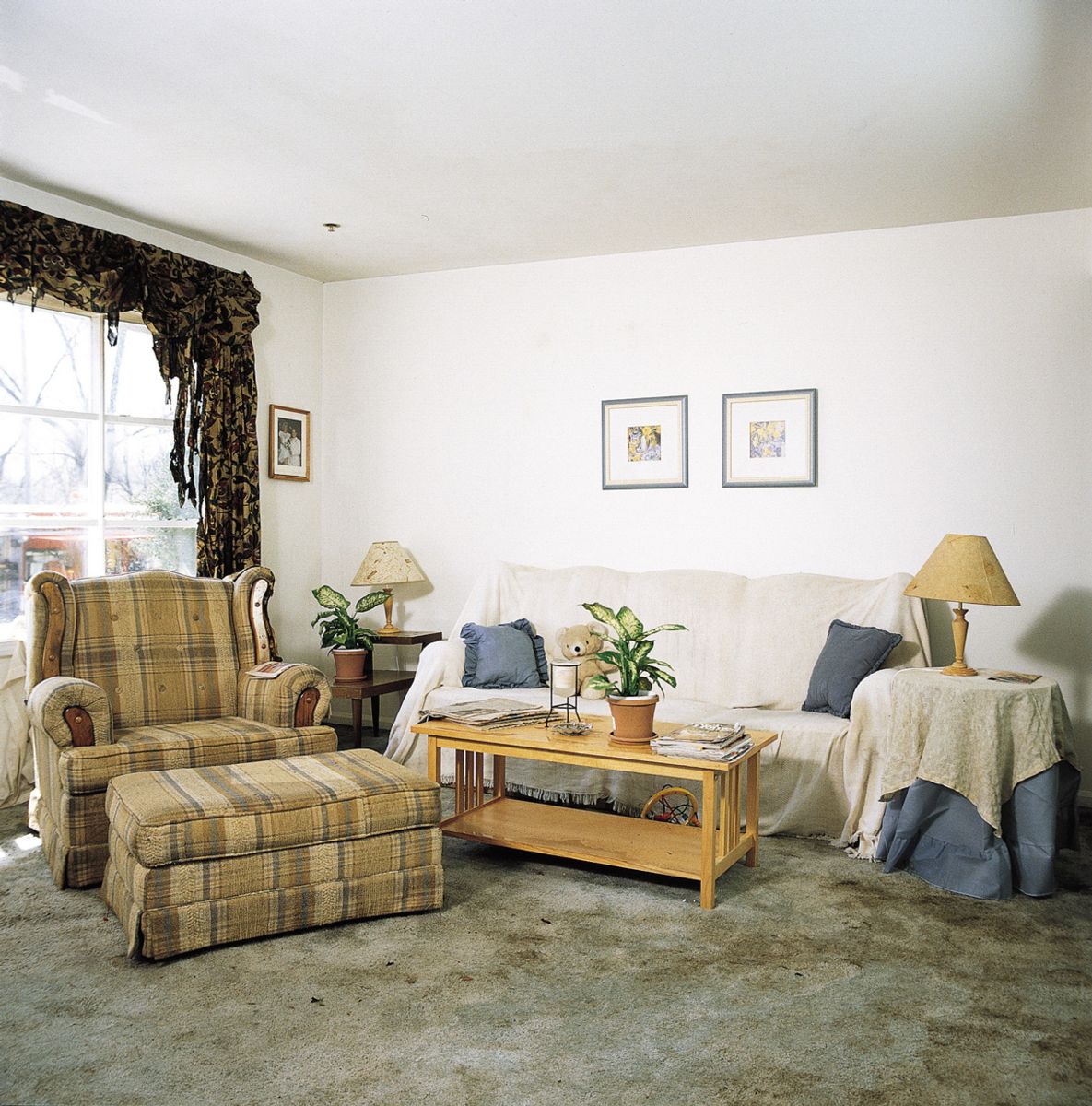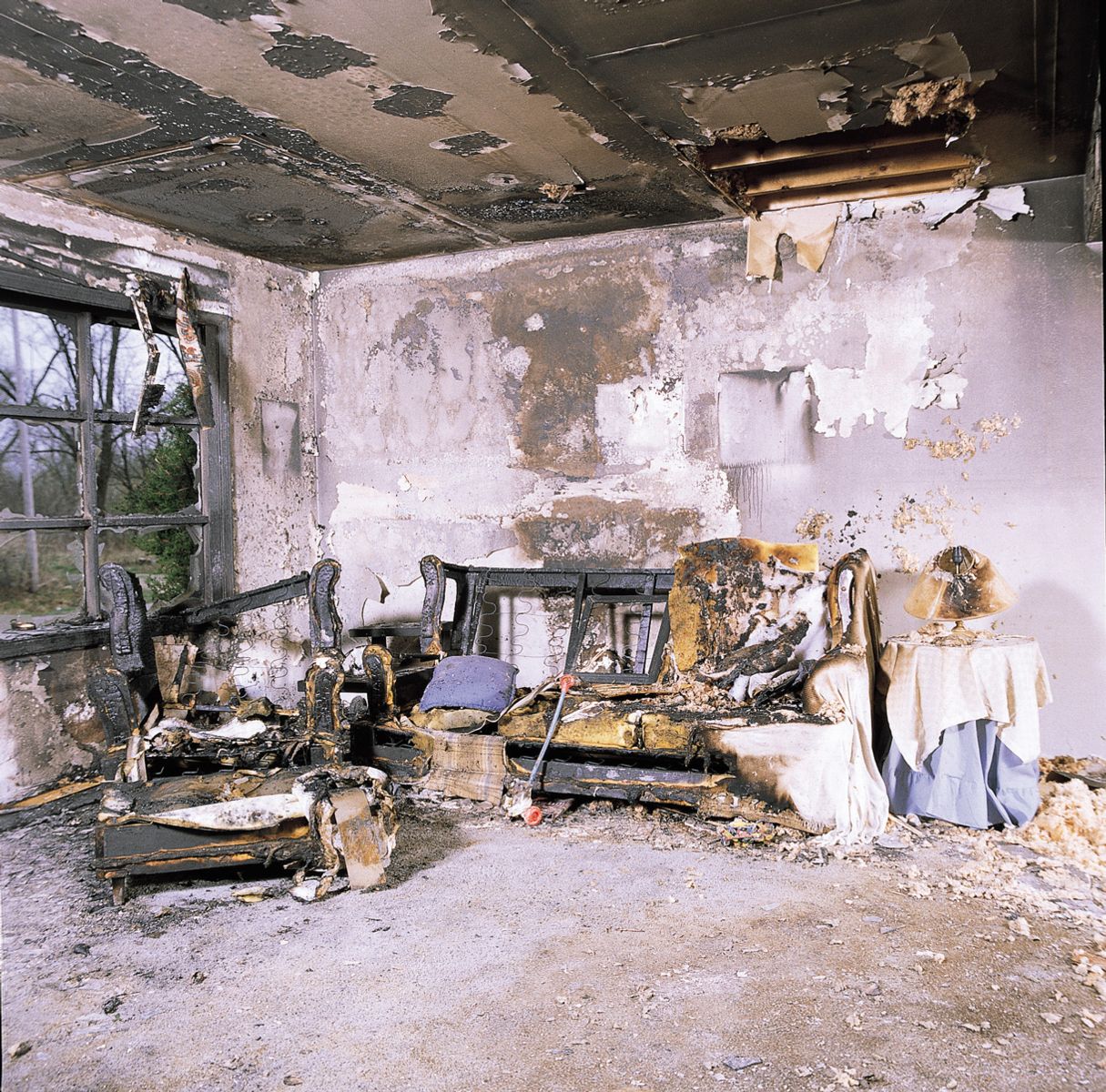|
 
Photo after fire; with sprinkler Photo after fire; without sprinkler.
(Photo courtesy of homefiresprinkler.org) (Photo courtesy of homefiresprinkler.org)
Sprinkler Systems in the commercial setting
Schools, office buildings, factories, and other commercial buildings have benefited from fire protection sprinkler systems for over a century. To protect investments in buildings and machinery, the textile mills in New England began using sprinkler systems over 100 years ago following a series of devastating fires that claimed many lives and destroyed entire businesses.
Sprinklers in Homes
But what about our homes? Although we protect our businesses from fire, what actions do we take to protect our families, our homes, and our possessions from fire? Millions of Americans have installed smoke alarms in their homes in the past few decades, but a smoke alarm can only alert the occupants to a fire in the house… it cannot contain or extinguish a fire. Residential sprinkler systems can!
Fires in residences have taken a high toll of life and property. In 2010 there were:
- 362,100 residential building fires
- 2,555 civilian fire deaths
- 13,275 civilian fire injuries
- $6.6 billion in property damage
Studies by the Federal Emergency Management Agency’s United States Fire Administration indicate that the installation of home fire sprinkler systems could have saved thousands of lives; prevented a large portion of those injuries; and eliminated hundreds of millions of dollars in property losses.
What Are Home Fire Sprinkler Systems?
Using quick response sprinklers and approved piping, homes can be built or even retrofitted to include low-cost automatic sprinkler systems connected to the domestic water supply.
Sprinkler systems offer advantages to the homebuilder:
- A low-cost reliable safety option that would attract many buyers.
- Trade-offs between sprinklers and code requirements that can result in lower construction costs, more units per area of land, etc. (5 to 15 percent)
- For homeowners, the advantages include assurance of a safer environment for their families, protection of their investment and irreplaceable family possessions, and lower insurance rates 5 to 15 percent.
Fast Response
Residential sprinklers, listed by Underwriters Labs, are now available. They are designed to respond to a fire much faster than standard commercial and industrial sprinkler systems. The new home sprinklers react automatically to fires more quickly because of their improved sensitivity.
Low Cost
At the present time, cost of a home sprinkler system is targeted at approximately $1.61 per square foot in new construction. It is hoped that the cost will decrease as the use of home fire protection grows. It is also possible to retrofit existing homes with sprinkler systems.
Small Size
For residential systems, the sprinklers will be smaller than traditional, commercial, and industrial sprinklers, and can be aesthetically coordinated with any room decor.
Minimal Installation Work
When homes are under construction or being remodeled, a home sprinkler system will require minimal extra piping and labor.
Low Water Requirement
These systems will require less water than the systems installed in industrial or commercial establishments and can be connected to the domestic water supply.
A Growing Number of Communities Promote Home Fire Sprinklers
The fire loss in this country in residential occupancies is alarming. Manual firefighting methods are not the answer. The way to attack the problem is to limit the fire growth where it occurs in dwellings. We have the technology to do that.
Residential Automatic Sprinkler Systems. Ordinance No. 745; Adopted May 28, 1969; by the San Clemente, California City Council
Proposition 13 was a major factor in promoting the ordinance. There is also a shift within the fire service toward more fire prevention and less suppression emphasis. San Clemente and Corte Madera, California were some of the first communities in the United States to enact a home sprinkler ordinance. Other communities that have initiated or plan to initiate residential sprinkler ordinances include:
- Livermore, California
- Montgomery County, MD
- Long Grove, Illinois
- Chapel Hill, North Carolina
- Germantown, Tennessee
- Scottsdale, Arizona
- Altamonte Springs, Florida
Through the use of construction trade-offs, homebuilders and developers can achieve reduced construction costs if home fire sprinkler systems are installed. Home sprinkler systems offer both safety and financial advantages to homebuyers, a rare combination.
Recourse: USFA
For more information on residential fire sprinklers, visit the Fire Sprinkler Association website.
| 
